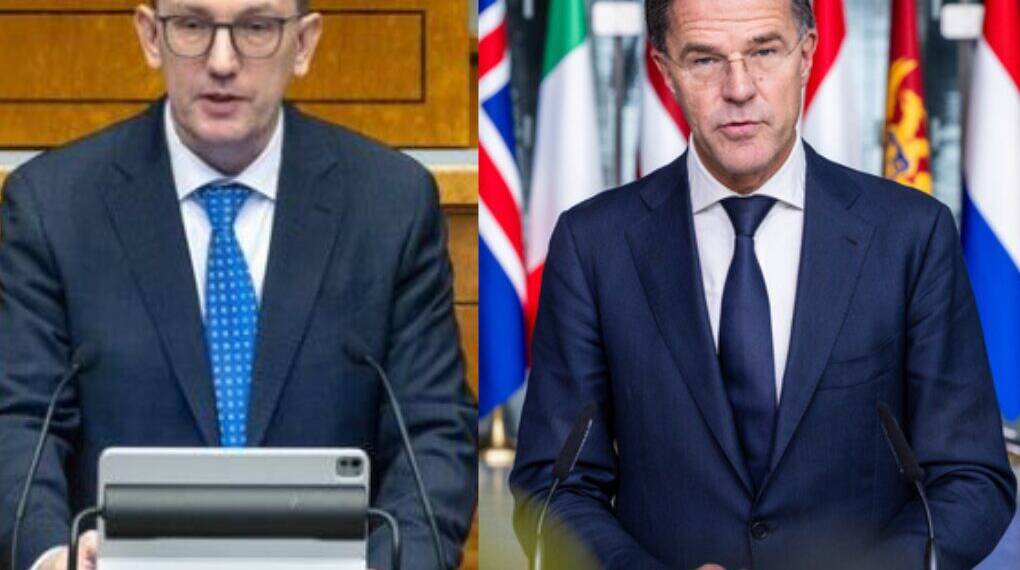On September 19, 2025, three Russian MiG-31 fighter jets pierced Estonian airspace for more than 12 minutes, setting off alarms in Tallinn and across NATO’s eastern flank. Estonia, a frontline member of the alliance, immediately invoked Article 4 of the North Atlantic Treaty, demanding urgent consultations.
What followed, however, was not the firm show of unity Estonia expected, but an unusually sharp clash inside NATO headquarters that has sparked questions about the alliance’s credibility.
Reports suggest that NATO Secretary General Mark Rutte openly confronted Estonian Prime Minister Kristen Michal during the September 23 North Atlantic Council meeting, warning against the “overuse” of Article 4. The tense exchange has laid bare growing divisions inside NATO, even as Russia escalates its hybrid provocations across Europe.
The Incursion: A Calculated Test of NATO Resolve
The airspace violation occurred over the Gulf of Finland, near one of Europe’s most strategically sensitive chokepoints. According to Estonian defense officials, the MiG-31s deliberately entered sovereign territory without communication, prompting NATO jets from allied bases in Lithuania and Finland to intercept and escort them out.
Moscow quickly dismissed the claims, insisting its aircraft were flying over international waters during “routine exercises.” But for Estonia, this was far from routine. It was the fourth airspace violation in 2025 alone, part of a broader pattern of Russian probes that include drone incursions over Poland, Romania, and the Baltic states.
Military analysts argue that such incidents are a form of hybrid warfare—low-level provocations designed to test NATO’s response time, create uncertainty, and probe for weakness without triggering a direct military confrontation.
Article 4 vs. Article 5: The Debate Over Deterrence
At the heart of the dispute is NATO’s Article 4, which allows members to request consultations whenever they perceive a threat to their territorial integrity or security. Estonia’s invocation was meant to underline the seriousness of repeated violations and demand collective attention.
But Rutte expressed frustration, reportedly raising his voice during the closed-door session. His concern, according to European officials, was that constant Article 4 meetings risk undermining its significance—turning it into a diplomatic “fire alarm” pulled too often.
This argument reflects a deeper tension. If Article 4, the consultation mechanism, is dismissed as an overreaction, what does that say about Article 5, NATO’s central promise of collective defense? Estonia’s leadership has voiced precisely this concern, warning that hesitation now could erode trust in NATO’s ultimate guarantee.
Estonia: A Loyal Ally Feeling Undervalued
Estonia’s frustration is heightened by its track record as one of NATO’s most committed members.
It spends 3.38% of GDP on defense, well above NATO’s 2% benchmark.
By 2026, Tallinn plans to raise defense spending to 5% of GDP, adding billions to its military budget.
Estonia contributes troops to NATO missions, hosts battlegroups, and has become a leader in cybersecurity and defense technology.
Despite this, Estonia feels sidelined. Prime Minister Michal has argued that his country is “treated as the canary in the coal mine”—forced to endure Russian provocations while NATO debates thresholds of seriousness.
Public opinion in Estonia echoes this sentiment. Polls indicate that 70% of Estonians now doubt NATO’s willingness to defend the Baltics, compared to 45% before Russia invaded Ukraine in 2022.
Russia’s Gain, NATO’s Risk
For Russia, NATO’s hesitation is an opportunity. Every sign of disunity strengthens the Kremlin’s narrative that the alliance lacks the resolve to defend its smaller members. This, analysts warn, could embolden Moscow to escalate provocations—whether through cyberattacks, further airspace violations, or covert destabilization operations.
Already, Poland and Romania have faced drone incursions, prompting their own Article 4 consultations. Without a strong collective response, the alliance risks appearing inconsistent and reactive rather than united and proactive.
Fallout and Future Steps
In response to NATO’s lukewarm reaction, Estonia is taking matters into its own hands. The government has announced:
Plans to expand conscription.
Accelerated procurement of additional F-35 fighter jets.
Enhanced investment in cyber defense infrastructure.
These moves reflect a growing recognition in Tallinn that self-reliance is essential, even within NATO.
But the broader question remains: Can NATO maintain the credibility of its deterrence if frontline states feel abandoned in moments of crisis? For Secretary General Rutte, the concern is preventing escalation and maintaining proportionality. For Estonia, the issue is survival.
A Test of Alliance Unity
The clash between Rutte and Michal underscores a central dilemma facing NATO in the 21st century. The alliance was built on clear-cut definitions of aggression—tanks crossing borders, bombs falling on cities. Today’s threats are blurrier: cyberattacks, drone swarms, and repeated “accidental” violations of airspace.
How NATO adapts to these new realities will define its future. If Article 4 is ignored or dismissed as alarmist, Article 5 itself may lose its deterrent power. And if smaller members like Estonia begin to doubt NATO’s resolve, the alliance’s very cohesion could be at risk.
The Russian jets may have left Estonia’s skies, but the deeper storm remains unresolved. For Tallinn, the message is that loyalty and high defense spending do not guarantee unqualified support. For NATO, the risk is that hesitation today could unravel credibility tomorrow.
As Russian provocations continue, NATO faces a stark choice: reaffirm its solidarity with members like Estonia—or risk eroding the very foundation of trust that has held the alliance together for more than 75 years.
Because if NATO hesitates over Article 4, what confidence can it inspire when the moment comes to invoke Article 5?








